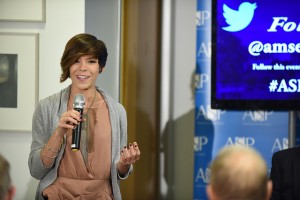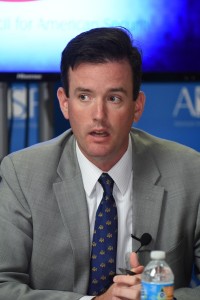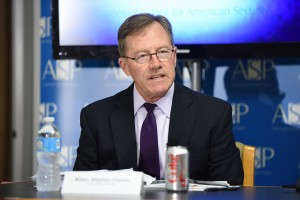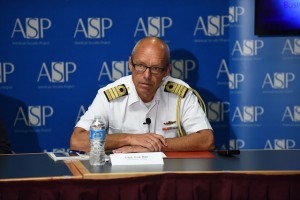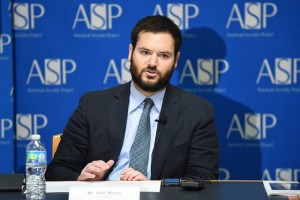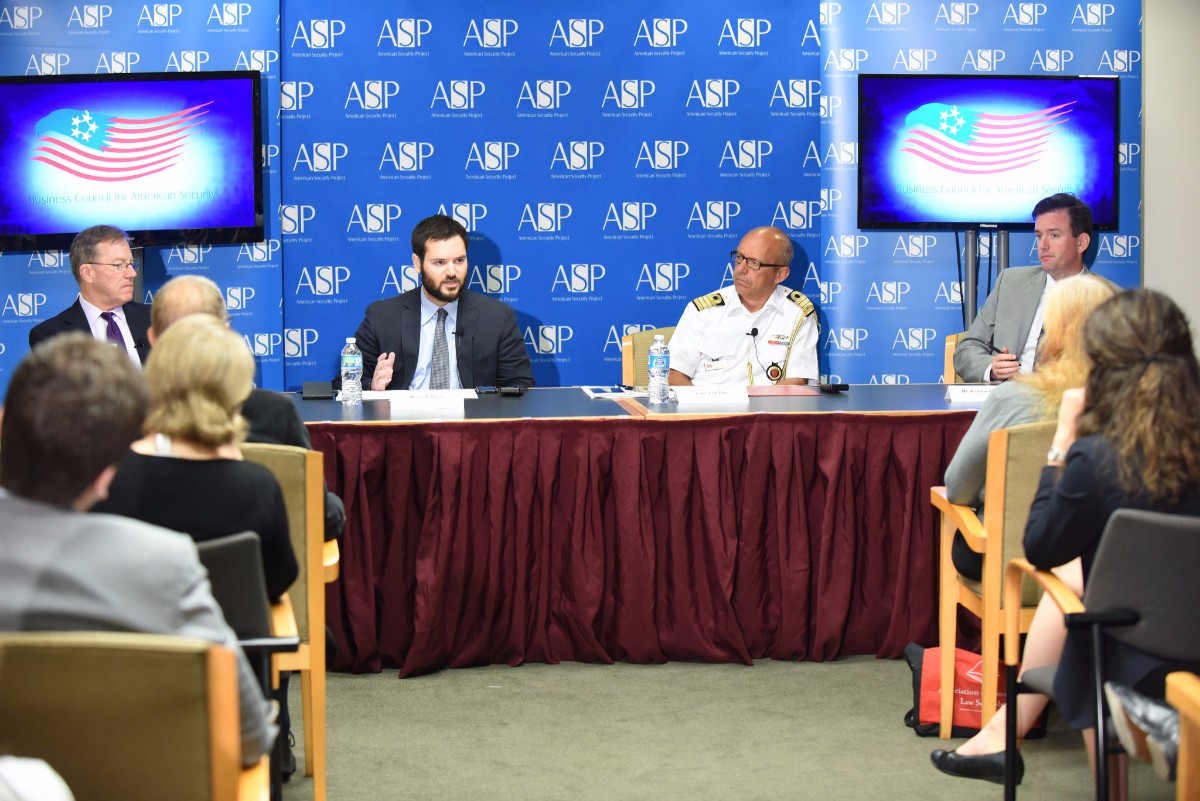 Flickr / Americansecurityproject
Flickr / Americansecurityproject
Event Recap: “Arctic Strategy: One Year into the U.S. Leadership of the Arctic Council”
Podcast: Play in new window | Download
Subscribe: Apple Podcasts | RSS
On June 15, American Security Project hosted a panel to reflect on the first year of US Leadership of the Arctic Council. Led by three speakers, BGen. Stephan A. Cheney, Mr. Seth Myers, and Capt. Erik Bøe, the discussion focused on how to build a region that is at peace, given a wider world of insecurity.
The Arctic is warming faster than anywhere else on earth, opening a new sea to humanity. As the Chair of the Arctic Council, America has a leading role in determining whether the 21st Century opening of the Arctic will happen peacefully and sustainably, or whether it will be characterized by conflict and exploitation.
Andrew Holland, Senior Fellow at American Security Project, moderated the event. As climate change has led to melting ice in the poles, there is looming concern over hazardous sea level rise on a global scale which requires immediate attention. Holland noted that of the five recommendations (ratifying the UN Law of Sea Convention, increasing funding for US military presence, making a final decision on whether to approve offshore oil drilling, raising the arctic profile by raising the arctic votes and elevating Admiral Papp’s position to a permanent ambassador), the government has acted on about two and a half of those.
The speakers devoted much of their time addressing the role of Russia in the Arctic. After Russian annexation of Crimea, the US and allies cancelled mil-to-mil exercises with Russia in the Arctic. Russian air force harassment of US ships in the Baltic have led to further tensions. With a changing military dynamic in the Nordic-Baltic region in response to perceived Russian aggression, there is a need to head off instability.
Russia has also put in a request to the United Nations Convention on the Law of the Sea (UNCLOS) for an extended Exclusive Economic Zone in its Arctic territory. Like all Arctic nations, Russia is following legal procedure.
General Cheney called for restraint and caution in cultivating a relationship with Russia in the Arctic. He advised that military buildup in Alaska, if its intent were to be preemptive action against a Russian threat, was unnecessarily provocative. In fact, Cheney half-jokingly said that there was currently more tension between Canada and the US over contested Arctic territory, than there was with Russia. More importantly, Cheney warned that the US was long due for devoting more resources into developing ice breaker capability and communication (GPS, AIS) to decrease dependence on other countries in case of emergencies.
Captain Bøe relayed that Norway had little apprehension over increased Russian activity in the Arctic. In fact, cooperation between Russia and northern Norway is strong across private and public sectors. Furthermore, Russian interest in the region is easily justified: Russia owns 50 percent of all Arctic territory which brings it significant economic returns, primarily charging fees for icebreaking services, rescue and international shipping charges. This could explain Norway’s hesitation to form closer relations with NATO: it is not in Norway’s national interest to jeopardize their relationship with Russia.
Citing examples from conflicts and peacetime throughout the past century, Mr. Myers described how the Arctic reflects events taking place in the international system. As evidenced by the dynamics between Russia and other Arctic countries, military security in the Arctic is complicated by outside events. As the security situation becomes more complex, Myers stated that the Arctic nations should take advantage of peacetime in order to build a viable security infrastructure using existing international structures.
The event closed with a Q&A session. Innovative ideas to maximize ice melt were addressed, for example the creation of bottling plants in the North. For this to be possible, Cheney reinforced the urgent need to solve the communication gap and develop infrastructure in US Arctic territory. Finally, in terms of global security, the event concluded with a call to avoid perpetuating the myth of a new Cold War in the Arctic.

